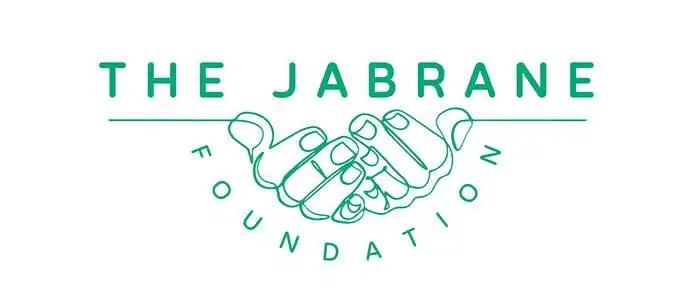Zakat, one of the important part Islam, is a significant religious obligation for Muslims. It is more than just a charity. Zakat is a required act in Islam that helps share wealth with others, helping those in need and reducing inequality within society. But who exactly qualifies for zakat in Islam? In this Article, you will find who qualifies for zakat, the process of calculating it, and the importance of giving zakat to the right recipients. Understanding of these elements is very important for both donors and recipients, zakat helps make sure everyone is treated fairly and gets the support they need
What is Zakat in Islam?
The Concept of Zakat
Zakat is an important practice in Islam, where a Muslim gives away a portion of their wealth to those in need. It is not voluntary charity; rather, it is a mandated duty for eligible Muslims. Zakat purifies wealth by encouraging its circulation, ensuring that the wealth does not remain concentrated in the hands of a few wealthy people. By doing so, it serves to help the less fortunate and maintains balance within the community.
Zakat as One of the Five Pillars of Islam
Zakat is an integral part of the Five Pillars of Islam, which form the foundation of every Muslim’s faith and practice. The Five Pillars are:
- Shahada (Faith)
- Salat (Prayer)
- Sawm (Fasting during Ramadan)
- Hajj (Pilgrimage to Mecca)
- Zakat (Charity)
Alongside other fundamental practices like prayer and fasting, zakat plays an important role in shaping the Islamic way of life, promoting generosity and compassion.
Zakat’s Role in Society and Its Spiritual Benefits
Zakat not only helps reduce poverty but also purifies the giver’s wealth, ensuring it is used in a righteous manner. It creates a sense of solidarity among the Muslim community, encouraging the wealthy to share their prosperity with the less fortunate. Spiritually, giving zakat is an act of obedience to Allah and a way to cleanse one’s soul, promoting humility and gratitude.
How to Calculate Zakat on Gold 2025?
Who Qualifies for Zakat in Islam?
8 Categories of Zakat Recipients (Mentioned in the Quran)
The Quran, in Surah At-Tawbah (9:60), outlines eight categories of people who qualify to receive zakat:
- The Poor (Fuqara) – Those who do not have sufficient means to fulfill their basic needs.
- The Needy (Masaqeen) – Those who are in financial distress but not necessarily impoverished.
- Zakat Collectors (Amil) – Those appointed to collect and distribute zakat funds.
- Those Whose Hearts Are to Be Reconciled – New Muslims or those whose hearts are inclined toward Islam.
- Those in Bondage (Slaves) – Individuals who are enslaved or in servitude.
- Those in Debt – Those burdened by debt and unable to repay it.
- For Allah’s Cause (Fi Sabilillah) – Those engaged in efforts that promote Islam and its teachings.
- The Wayfarer (Travelers in Need) – Those who are stranded or traveling without sufficient funds.
The Need for Financial Poverty or Hardship
To qualify for zakat, an individual or family must be in genuine financial need. This may include not having enough income to provide for basic necessities like food, shelter, and clothing. Zakat is designed to alleviate such hardships, offering a helping hand to those in need during difficult times.
How Zakat Aims to Reduce Inequality
Zakat serves as an effective tool for wealth redistribution, ensuring that financial disparities within the Muslim community are addressed. The wealthier Muslims, who meet the nisab threshold 2025, are required to give 2.5% of their wealth to those in need, helping reduce inequality and fostering a more balanced society.
How to Calculate Zakat in Islam 2025
How to Calculate Zakat in Islam
Overview of Zakat Calculation
Calculating zakat can seem daunting, but it is simple once the basic guidelines are understood. Zakat is calculated as 2.5% of an individual’s wealth, but this is only applicable if the wealth surpasses the nisab threshold, which is the minimum amount of wealth required to be liable for zakat.
The Nisab Threshold:
The nisab is the minimum wealth an individual must possess for zakat to be obligatory. It is based on the current market value of either gold or silver. If a Muslim’s wealth is equal to or greater than the nisab value, zakat becomes mandatory. As the nisab fluctuates with the market value of gold or silver, it is important to check the current rates.
How Zakat is Calculated on Various Types of Wealth
Zakat is not just limited to cash. It is calculated on different forms of wealth, including:
- Cash and savings – Any liquid assets or savings exceeding the nisab.
- Gold and silver – Precious metals are included in zakat calculations.
- Investments and business assets – Business inventory, stocks, and other investments.
- Crops and livestock – Zakat is due on agricultural produce and livestock as well.
Using a zakat calculator 2025 can simplify this process. These online tools help Muslims calculate the exact amount of zakat they owe by taking into account their wealth, liabilities, and the current nisab value.
Conditions for Receiving Zakat in Islam
The Necessity of Being a Muslim
Zakat is specifically for Muslims. Although charity can be given to non-Muslims, zakat is a religious duty and can only be given to fellow Muslims who are in need.
The Importance of Being in Need of Financial Distress
Zakat is designed to support those who are facing financial hardship. If an individual has enough resources to cover their basic needs, they do not qualify to receive zakat. Only those in genuine financial distress can claim zakat.
How the Recipient Must Not Be a Close Family Member
Zakat cannot be given to close relatives like parents, children, or spouses, as Muslims are already obligated to support their immediate family members financially under Islamic law. However, Muslims can give charity outside of zakat to help their relatives in need.
Common Misconceptions About Zakat Eligibility
Can Non-Muslims Receive Zakat?
Non-Muslims are not eligible to receive zakat. However, Muslims can donate to non-Muslims through other charitable acts, though such donations would not be classified as zakat.
Are Wealthy People Eligible for Zakat?
Wealthy individuals who exceed the nisab threshold are not eligible to receive zakat. However, if they are in financial distress, such as having substantial debt or being on a journey, they may qualify for zakat.
Can Zakat Be Given to Relatives or Friends?
Zakat cannot be given to immediate family members like parents, children, or spouses. However, Muslims can give charity outside of zakat to support their relatives, including siblings and extended family members, who are not financially well-off.
Conclusion
Zakat plays a vital role in the welfare of the Muslim community by ensuring that wealth is distributed more equally and that those in need are supported. By understanding who Qualifies for Zakat, both givers and recipients can ensure that this powerful act of charity is carried out properly. Zakat is more than just an obligation—it is an act of worship that purifies wealth and promotes social justice within society. Whether you are giving or receiving zakat, understanding its rules and importance helps fulfill its purpose in reducing poverty and inequality, creating a stronger, more compassionate Muslim community.



Pingback: How Much is Fidya for Ramadan 2025?